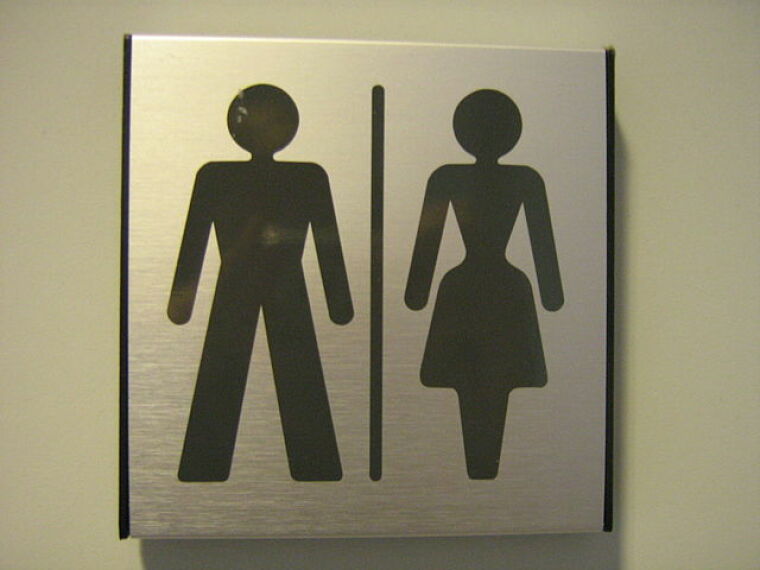Churches now exempt from Massachusetts anti-discrimination law

Four churches have agreed to drop their lawsuit against Massachusetts after the state updated the anti-discrimination law to remove houses of worship as places of public accommodation.
In September, the Massachusetts Commission Against Discrimination (MCAD) released an updated Gender Identity Guidance that prohibited public places from discriminating against any person based on gender identity, The Stream reported.
The guidance would have forced churches to allow any person to use bathrooms that conform to their gender identity instead of their biological sex.
The original guidance stated that "even a church could be seen as a place of public accommodation if it holds a secular event, such as a spaghetti supper, that is open to the public." Those who are found be in violation of the law could be fined $2,500 or face up to a year in jail.
However, the state reconsidered the guidance after the four churches, represented by Alliance Defending Freedom (ADF), filed the lawsuit in early October.
"Your lawsuit caused us to focus on these issues and to make this revision," the Massachusetts Civil Rights Division said in a letter to ADF.
The guidance has since been revised to say that the "law does not apply to a religious organization if subjecting the organization to the law would violate the organization's First Amendment rights." The state also removed "houses of worship" from the list of places of public accommodation from the Attorney General's website.
"The comments of commonwealth officials gave these churches reason for great concern, and so we are pleased wording changes have been made to respect the constitutionally protected freedoms these congregations and pastors have," ADF Senior Counsel Steve O'Ban said in a press release.
ADF attorneys filed a motion to voluntarily dismiss the lawsuit on Monday. According to MassLive, the lawyers wrote in their motion that they still do not fully agree with the language in MCAD's rules, but they are satisfied enough with the changes.
They further stated that they could still challenge the law if the state officials apply it against a particular church in a way that ADF deems unconstitutional.
 Christians don't have to affirm transgenderism, but they can’t express that view at work: tribunal
Christians don't have to affirm transgenderism, but they can’t express that view at work: tribunal Archaeology discovery: Medieval Christian prayer beads found on Holy Island
Archaeology discovery: Medieval Christian prayer beads found on Holy Island Presbyterian Church in America votes to leave National Association of Evangelicals
Presbyterian Church in America votes to leave National Association of Evangelicals Over 50 killed in 'vile and satanic' attack at Nigerian church on Pentecost Sunday
Over 50 killed in 'vile and satanic' attack at Nigerian church on Pentecost Sunday Ukrainian Orthodox Church severs ties with Moscow over Patriarch Kirill's support for Putin's war
Ukrainian Orthodox Church severs ties with Moscow over Patriarch Kirill's support for Putin's war Islamic State kills 20 Nigerian Christians as revenge for US airstrike
Islamic State kills 20 Nigerian Christians as revenge for US airstrike Man who served 33 years in prison for murder leads inmates to Christ
Man who served 33 years in prison for murder leads inmates to Christ


 Nigerian student beaten to death, body burned over ‘blasphemous’ WhatsApp message
Nigerian student beaten to death, body burned over ‘blasphemous’ WhatsApp message 'A new low': World reacts after Hong Kong arrests 90-year-old Cardinal Joseph Zen
'A new low': World reacts after Hong Kong arrests 90-year-old Cardinal Joseph Zen Iran sentences Christian man to 10 years in prison for hosting house church worship gathering
Iran sentences Christian man to 10 years in prison for hosting house church worship gathering French Guyana: Pastor shot dead, church set on fire after meeting delegation of Evangelicals
French Guyana: Pastor shot dead, church set on fire after meeting delegation of Evangelicals ‘Talking Jesus’ report finds only 6% of UK adults identify as practicing Christians
‘Talking Jesus’ report finds only 6% of UK adults identify as practicing Christians Mission Eurasia ministry center blown up in Ukraine, hundreds of Bibles destroyed: 'God will provide'
Mission Eurasia ministry center blown up in Ukraine, hundreds of Bibles destroyed: 'God will provide' Church holds service for first time after ISIS desecrated it 8 years ago
Church holds service for first time after ISIS desecrated it 8 years ago Burger King apologizes for 'offensive campaign' using Jesus' words at the Last Supper
Burger King apologizes for 'offensive campaign' using Jesus' words at the Last Supper Uganda: Muslims abduct teacher, burn him inside mosque for praying in Christ’s name
Uganda: Muslims abduct teacher, burn him inside mosque for praying in Christ’s name